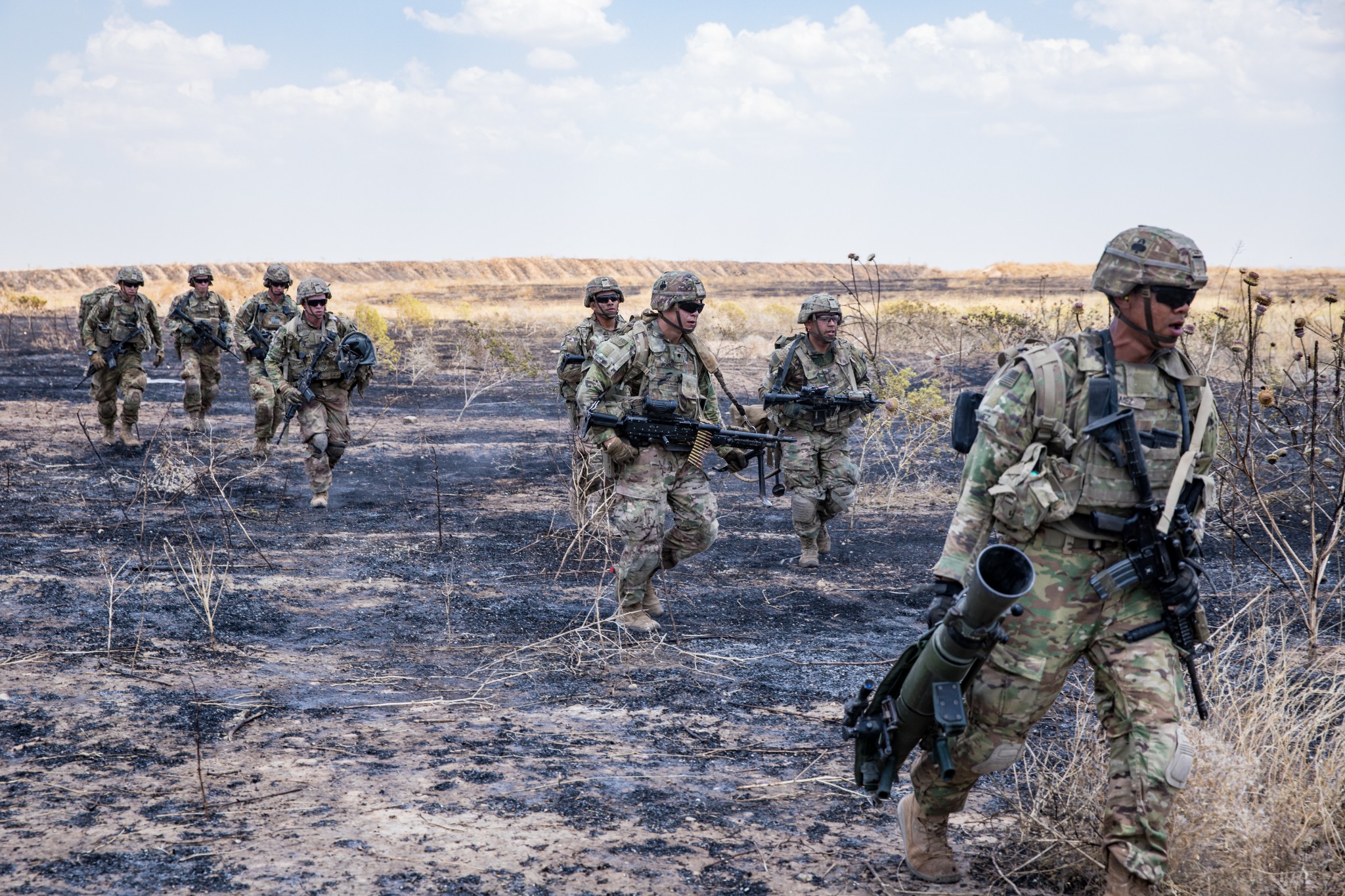 U.S. Army Reserve photo by Spc. DeAndre Pierce
U.S. Army Reserve photo by Spc. DeAndre Pierce
Rethinking America’s Counterterrorism Strategy
Counterterrorism has dominated America’s national security agenda since the 9/11 terror attacks. Yet as policymakers seek to reduce US involvement in foreign operations and focus on great power competition, counterterrorism has become sidelined. The ongoing COVID-19 pandemic has allowed violent extremists and terrorist groups to exploit security gaps and expand their influence. The Trump administration’s divestment of Countering Violent Extremism (CVE) efforts and disengagement from the United Nations have damaged American counterterrorism efforts in a time when they are desperately needed. Here are three recommendations to effectively combat terrorism’s persistent and evolving threat:
Return Counterterrorism a Top National Security Priority
Counterterrorism has been demoted from America’s top national security priorities as focus shifts towards great power competition with adversaries like Iran, Russia, China, and North Korea. The DoD’s 2018 National Defense Strategy articulated that the “central challenge to U.S. prosperity and security is the reemergence of long-term, strategic competition by…. regional powers.” and that “Inter-state strategic competition, not terrorism, is now the primary concern in U.S. national security.”
Reducing US military presence and withdrawing from US-led and partner counterterrorism missions has become a bipartisan consensus among policymakers who aim to shift away from “forever wars” in the Middle East. Although it is reasonable for the U.S. to rebalance resources towards new security threats, shifting budgets away from counterterrorism could reverse hard-fought gains. The Bureau of Counter Terrorism (CT) reported in 2019 that over 20% of its civil servant positions were vacant due to a hiring freeze, and CT employees raised concerns about recruitment and lack of resources. These weak points in U.S. counterterrorism efforts come at a time when terrorist organizations seek to exploit instability from the ongoing COVID-19 pandemic.
The Biden Administration should work to better coordinate national security priorities and optimize areas of overlap between counterterrorism and great power competition. Instead of shifting funding from one national security priority to another, President Biden should enhance inter-agency cooperation and allocate resources toward converging goals.
Restore American Leadership in UN Counterterrorism Efforts
The Trump administration sought to disengage and cut funds from various UN agencies. Former President Trump used the UN as a tool to carry out narrow-minded US counterterrorism goals while disregarding the long-term strategic benefits of multilateral partnerships. The UN is indeed a flawed body, yet it has played a crucial role developing a coordinated global effort in fight against terrorism. In today’s interconnected security environment, a unilateral approach to countering terrorism’s diversifying threat is neither effective nor efficient. The US must embrace the UN in its ability to enhance communication among partners, utilize limited resources, and build member state capacity.
Lack of American leadership and engagement in the UN has allowed malign actors to gain influence, particularly in UN counterterrorism efforts. States like China, Russia, Egypt, Saudi Arabia, and Qatar have filled the void in counterterrorism proceedings, raising concerns that the UN is legitimizing the agendas of authoritarian regimes. President Biden has pivoted away from the Trump administration’s blatant rejection to international cooperation and is working to rebuild American multilateralism and diplomacy. The new administration must stand its ground against the abusive influence of malign actors and work with ally states to ensure human rights, humanitarian aid, and civil society are central in the counterterrorism process.
Invest in Countering Violent Extremism (CVE)
Countering Violent Extremism (CVE) is an essential tool in addressing the threat of foreign terrorist groups. CVE acknowledges that military strategies alone will not defeat terrorism and works to engage local communities and non-governmental actors in opposing the violent extremist narrative and addressing underlying conditions that can enable violent extremism.
Under the Trump administration, CVE was put on the back burner of America’s counterterrorism strategy. The State Department’s Bureau of Counterterrorism removed “Countering Violent Extremism” from its title, and dramatically reduced CVE funding. Former President Trump’s 2021 Congressional Budget Request reduced CVE funding by $115,713,000 from the Obama administration’s last request in 2017. In addition, the Trump administration cut the Obama-era Department of State & USAID Joint Strategy on CVE, a key instrument in developing a uniform and connected approach to CVE operations across government agencies.
CVE can be an incredibly effective tool in US counterterrorism efforts, but only through long-term investment and cross-agency coordination. Standard operating procedures must be implemented to ensure that regional and thematic bureaus across the State Department and USAID are promoting a consistent CVE vision. The Biden administration should reestablish the State Department & USAID Joint Strategy on CVE to restore coordination of funds and strategic goals among government agencies.





